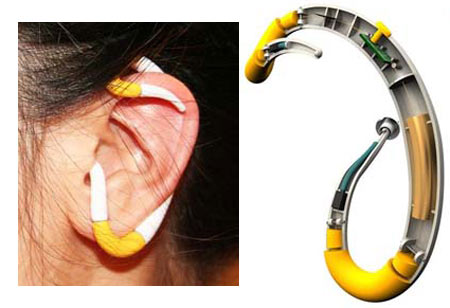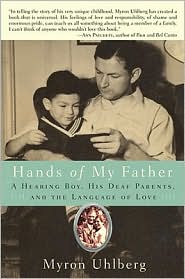Artist Gary Price
12 years ago
Coping with late deafened hearing loss
|





From what I have observed, audiologists seem to think their "job" is to fit/sell hearing aids as the solution to the hearing loss problems of the hard of hearing people that come to them. I wish audiologists understood that their real job is to us help hard of hearing people cope with our hearing losses.
Learning about hard of hearing people and the many effective coping skills they need to live successful lives—now that is worthy of an audiological degree!
I wish audiologists would teach us how to become friends with our hearing aids. We need training and coaching and support as we start life with these strange uncomfortable things stuck in our ears. We need to learn to cope with sound all over again. We need their help to do this. I wish audiologists would not sell us hearing aids and then dump us out on the street. [my bolding because that's how I felt when I got my first aids -- dumped on the street with all these new sounds, wondering if this is really what hearing was supposed to be like (loud, painful, nerve-wrecking, still-can't-hear-voice-well)]
People who lose their hearing need help, training and encouragement in learning speechreading—not derision and scorn. Speechreading is every bit as important as being fitted with hearing aids! I wish audiologists could realize this.
There are numerous coping skills we hard of people need to learn. I wish audiologists would realize this and teach us what we need to know—even though we don’t know we need to know it. [Prepare us for what our new lives with hearing loss and aids will be like.]...We also need to know the rules so we can teach our families and friends how to communicate effectively with us....We need to know how to preserve the little precious hearing we still have. Furthermore, we need to know about the many drugs that can damage our ears.....Hard of hearing people feel alone and cut off. I wish audiologists realized just how cut off we can be and put us in touch with support groups.....Hearing loss affects our whole family. Therefore, all of us need joint help and counseling. I wish my audiologist would teach all of us the coping strategies we need to live successful lives together....I wish audiologists would realize that hearing aids are just a small part of the solution, not the total solution.
Coping with Hearing Loss
Samuel Trychin, Ph.D.
from Seminars in Hearing -- Volume 18, Number 2, May 1997, pp 77-86
What people who are hard of hearing say when they are not able to understand what someone else is saying is of critical importance in their ability to successfully cope with hearing loss. My observation is that people who are hard of hearing mostly say things like, "Huh?," "What?," "Would you repeat that?," "I'm sorry!," "Excuse me?," "I didn't get that," or "I didn't understand you." These are all ineffective responses to a communication problem because they do not contain any information about what needs to be done to resolve the difficulty. The speaker is informed that a communication breakdown has occurred, but has no clue as to what to do to solve the problem. Put in this situation, many people may opt for ending the conversation or for ignoring the hard-of-hearing person if it is a group discussion. Then, the person who is hard of hearing will probably blame the hearing loss, when in fact it was their ineffectual response that produced their being shut out. A much better response to a communication breakdown would be to offer a solution to the problem, that is, "Please slow down" (or "Face me when you speak" or "Raise your voice a little"). This provides the speaker with something concrete to do to be better understood and increases the probability that they will continue the conversation. Unfortunately, many people who have hearing loss and their family members are unable to identify the causes of communication breakdowns and need to be taught to do so.
Speaker, environment, and listener factors interact with hearing loss and cause or exacerbate communication problems. Family members, supervisors, co-workers, friends, and people who are hard of hearing themselves need to understand how these factors operate in communication situations. Otherwise, faulty attributions about someone's failure to understand are made and relationships are too frequently damaged as a result. For example, a frequent complaint of family members is, "I don't understand the variability in his ability to understand me; sometimes he understands everything I say and other times nothing. This is very upsetting for me." This confusion often leads to the statement, "He can understand me when he wants to" or "She has selective hearing."
Problem is, this article doesn't go any further in providing ways to identify these problem factors in communication and how to relay to your conversation partner how best to communicate in certain situations. I'm going to try to get this book from the library. If I get it, I'll update with tips on how to identify communication problems and suggest solutions.The reason that people experience this kind of confusion is that they do not know the specific causes of communication breakdowns, that is, the speaker, environmental, and listener factors. Speaker factors include such things as not speaking clearly, speaking too rapidly, or speaking too softly. They also include other characteristics of the speaker, such as, foreign accent, distracting mannerisms, and beards or mustaches that obscure the lips. Environmental factors include background noise, lighting conditions, and acoustics. They also include factors such as visual or auditory distractions, ventilation, and seating arrangements. Listener factors include facts about the individual's hearing loss such as severity, type and onset characteristics. They also include the listener's ability to pay attention, emotional status, and distracting body sensations or thoughts. A major goal of the training is to enable people to identify these factors when they occur. Once people are able to identify the specific causes of communication problems, they are in a better position to suggest solutions to them. These factors and suggestions for reducing their effects are discussed in greater detail in Staying in Touch (Trychin & Albright, 1993).


| Through Deaf Eyes - PBS documentary about Deaf history in America. Very informative, eye-opening, educational and entertaining. |
